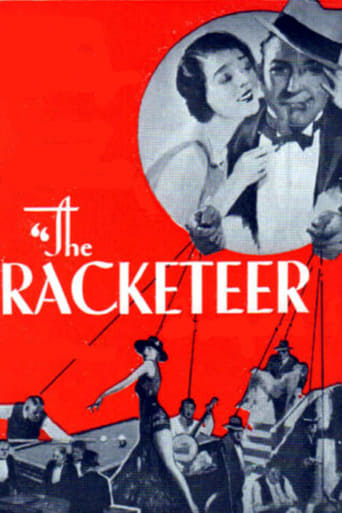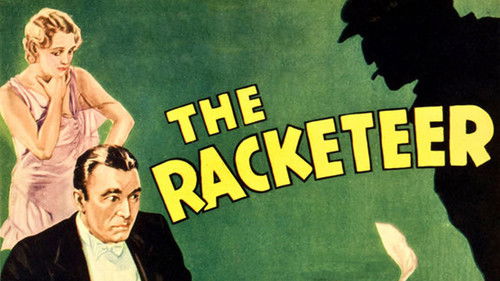JohnHowardReid
Here's one to disappoint all Carole Lombard's fans and one that will not make a great impression on Robert Armstrong's either. On the other hand, Paul Hurst's legion of admirers will be in seventh heaven. Hurst not only has a meaty role for once (even if it was all shot in one day) but plays it brilliantly. Also to the fore is Hurst's victim, Al Hill, in his best role ever. Kit Guard as Gus also enjoys the best moments of his career. On the other hand, Roland Drew, as the third point in the Armstrong-Lombard love triangle, is a dud. Fortunately, this suits the role to some extent, though one is left wondering what a spoiled, sexy socialite finds in the dope ("dope" in both senses of that word). Like many "B" movie directors, Howard "Sal of Singapore" Higgin sails neatly through the movie, seemingly unaware of the many sound recording problems that worried "A" directors like Victor Fleming, King Vidor and John Ford. Available on a very good Grapevine DVD.
wes-connors
New York City racketeer Robert Armstrong (as Mahlon "Mahl" Keane) helps beautiful divorcée Carole Lombard (as Rhoda Philbrooke) reform boozing Roland Drew (as Anthony "Tony" Vaughan), then wants her hand in marriage. She feels loyalty toward Mr. Armstrong, but Ms. Lombard apparently left her millionaire husband for Mr. Drew, who can play the violin beautifully when he's not drinking. This early sound film features some poor line delivery and a few good camera angles. Unfortunately, there is too much of the former and not enough of the latter.**** The Racketeer (11/9/29) Howard Higgin ~ Robert Armstrong, Carole Lombard, Roland Drew, Paul Hurst
Claudio Carvalho
In 1929, in New York, the powerful mobster Mahlon Keane (Robert Armstrong) meets the bankrupted former socialite Rhoda Philbrooke (Carol Lombard) in a poker game of a benefit fund-raiser party and helps her to cheat the game. Rhoda had divorced from her wealthy husband to stay with her alcoholic lover, the violinist Tony Vaughan (Roland Drew), and is financially broken. Mahlon feels attracted by Rhoda and helps her to recover the health of Tony and promotes his career. Later Mahlon proposes Rhoda, who accepts to marry him, but a couple of hours before their marriage in a yacht, Tony tells Rhoda that he loves her. While Rhoda thinks how to tell Mahlon about her love for Tony, a tragedy happens in Tony's dressing room."The Racketeer" is one of the first American features in the sound age, and has a dated melodramatic story of a triangle of love composed by a gangster, a musician and an ex-socialite. This film is only reasonable, having silly dialogs, average theatrical performances, terrible quality of sound with a terrible voice intonation of the cast and the images have not been restored, therefore is full of problems. The Brazilian DVD released by London Distributor, has an additional problem, with the bad quality of subtitle in Portuguese, full of mistakes, without synchronization and using capital letters in the first letter of every sentence. "The Racketeer" is only recommended as a curiosity of the transition between silent and sound features. My vote is five.Title (Brazil): "O Gangster" ("The Gangster")
mgconlan-1
"The Racketeer" stars Carol (deprived of the "e" that usually appeared at the end of her first name) Lombard as a woman thrown out of society because she left her husband for a concert violinist (Roland Drew) who has since become a down-and-out alcoholic, and torn between her love for him and the interest of New York crime kingpin Robert Armstrong (top-billed). It's virtually a compendium of what was wrong with the earliest talkies: stiff direction, immobile cameras, stagy acting and ridiculously slow-paced delivery of lines. At the time the sound crews were telling the directors to have their actors speak every line s-l-o-w-l-y and not to start speaking their own line until after the previous actor had finished theirs. Done about five years later, this could have been an interesting movie, but director Howard Higgin faithfully follows his sound recorder's dictates and systematically undercuts the talents we know Lombard and Armstrong had from watching their later movies. "The Racketeer" was made in 1929, a year that despite the transition problems from silent to sound nonetheless gave us some legitimate masterpieces — Vidor's "Hallelujah!," Mamoulian's "Applause," Wyler's "Hell's Heroes," Capra's "Ladies of Leisure" — all from directors with strong enough wills to tell the soundboard dictators to get stuffed and let their actors talk and act naturalistically. Too bad Howard Higgin wasn't that strong; as it is, watching a naturally rapid-paced actor like Armstrong slog through the part in the ridiculous way he's been told to speak, one can't help but wonder where that 50-foot gorilla is when Armstrong needs him.




